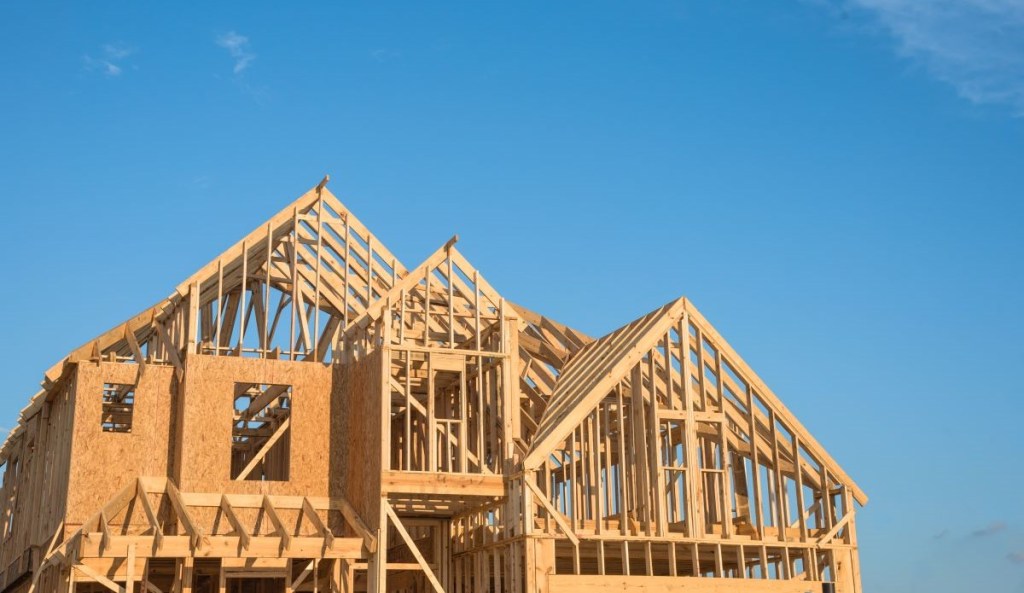In some ways, 2023 was the year of the homebuilder. There wasn’t much competition from existing homeowners. And with the ability to buy down consumers’ mortgage rates while still maintaining double-digit margins, new construction grew to comprise roughly 30% of total housing inventory in 2023, more than double a normal year.
The business appears durable, too. Many of the top national homebuilders have rosy forecasts for the coming year.
“The new home market has been extraordinary in 2023, and I think heading into 2024, we’re going to have the golden age of new home construction,” David O’Reilly, CEO of Howard Hughes, said in a recent CNBC interview.
Most housing market forecasters believe that the existing home-sales market will likely only improve slightly next year. Let’s look at the new construction forecast for 2024.
Housing starts
Economists believe that 2024 will be a slightly better year than 2023 for homebuilders, but that some headwinds will persist, especially for non-publicly traded builders, who lack the economies of scale and access to capital markets that their larger cohorts possess.
At around 30% now, the homebuilding industry is likely near the peak level of new-home sales as a share of the entire housing market, according to industry experts who spoke with HousingWire in August.
In terms of housing starts, a key measure of coming inventory, National Association of Realtors’ Chief Economist Lawrence Yun forecasts 1.04 million new single-family construction units in 2024. Ali Wolf, Zonda’s chief economist, predicts 930,000 new single-family construction units next year, while BTIG’s managing director and homebuilding analyst Carl Reichardt expects 980,000 new single-family units. For new home sales, BTIG forecasts 705,000 sales, while Zonda expects new home sales to remain flat year over year.
The pipeline
Depending on the source, the U.S. remains deficient by anywhere between 1.5 million and 7.3 million housing units due to a severe lack of supply produced between 2012 and 2019.
This year, even with the boom in new-home construction, “we’re expecting a number somewhat below 900,000 for single-family home starts,” Robert Deitz, the chief economist of the National Association of Homebuilders, told HousingWire in August. “We need to build above 1.1 million to start reducing our deficit.”
In short, the pipeline of new single-family homes isn’t anywhere close to reaching demand but there is some encouraging news.
Privately‐owned housing units authorized by building permits in November were at a seasonally adjusted annual rate of 1.46 million, roughly 2.5% percent below the revised October rate of 1.49 million, but 4.1% above the November 2022 rate of 1.40 million.
Single‐family authorizations in November were at a rate of 976,000, 0.7% above the revised October figure of 969,000. Authorizations of units in buildings with five units or more in November were at a rate of 435,000.
While permits for single-family construction were at their highest level since May 2022, new apartment construction permits were down 21% compared to last November and are at their lowest level since October 2020.
Data on residential permits suggest that new single-family housing construction will continue to be robust heading into 2024, while apartment construction will be slow.
According to Dietz, the long-term housing deficit, coupled with lower mortgage rates and a persistent lack of resale inventory will help buoy demand for new single-family construction.
Meanwhile, many factors indicate that multifamily construction will post a significant decline in 2024. First of all, 2023 saw the largest number of apartments under construction ever recorded since 1973. Additionally, rent growth is slowing and the vacancy rate in rentals is increasing. The biggest headwind that homebuilders will confront when it comes to multifamily construction is the tight financing conditions in multifamily development.
In terms of sales volume, Dietz expects that new home sales will comprise 15% of transactions on the market in 2023.
“We believe both of those figures will decline in 2024 as resale inventory increases with declining mortgage rates,” Dietz said.
For more than a decade, housing has suffered a structural shortage of homes rooted in supply-side issues. Labor shortages, lot shortages, lending issues, cost of lumber and materials as well as legal and regulatory barriers have made it difficult to deliver more homes to the American market. Dietz estimates that the U.S. is short of 1.5 million homes right now.
Over the past few years, single-family construction ramped up, starting in 2021 as a strong demand kicked in and supply chain issues were resolved. Both in 2021 and 2022, there were over 1 million new single-family starts nationally. By contrast, in the decade 2009 through 2019, there was an average of 660,000 single-family homes constructed each year.
This year will probably be a little slower than 2022, with an expected 950,000 new single-family starts when the full data is in. The slower construction of new, single-family homes can be explained partly by the sharp increase in new apartment construction in 2023.
Private builders will face more headwinds in 2024
The tightening of lending standards will impact smaller homebuilders more than the larger 20 publicly-traded builders, experts told HousingWire.
There are about 12,000 private builders in the United States, according to Reichardt, BTIG’s homebuilding analyst.
The labor supply shortage is another headwind that might weigh down on the industry next year. The NAHB estimates that the construction industry is short of about 400,000 workers.






